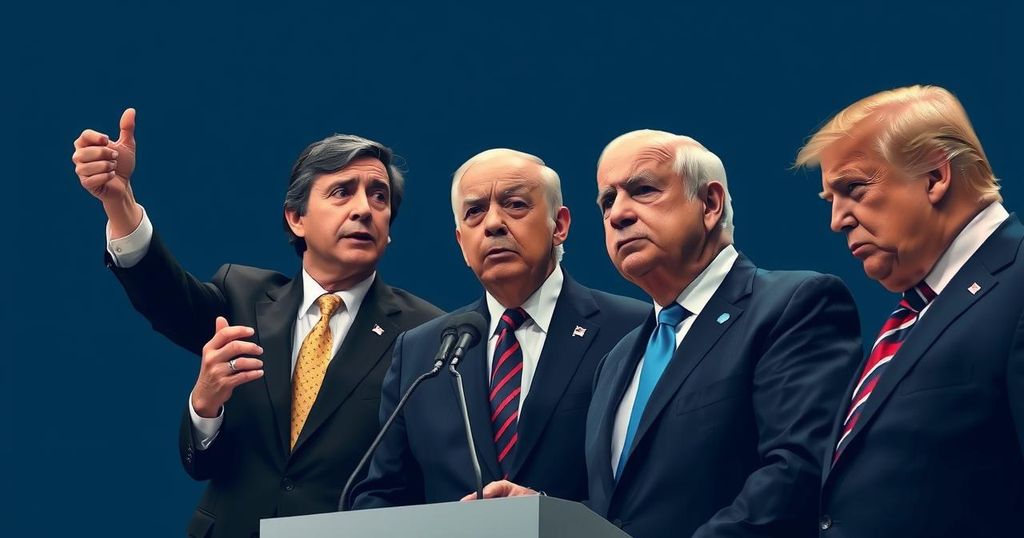Donald Trump’s election has sparked varied reactions from world leaders, highlighting concerns about international stability. NATO Secretary-General Rutte and Ukraine’s President Zelenskyy express cautious optimism about U.S. support, while European leaders are anxious due to Trump’s previous protectionist policies. In the Middle East, Netanyahu welcomes Trump’s return, whereas Hamas conditions its acceptance based on U.S. actions. Analysts predict escalating tensions with China under Trump’s leadership, indicating a significant geopolitical shift ahead.
The recent election of Donald Trump to the presidency has elicited varied reactions from global leaders, reflecting a mix of anticipation and concern. Trump won decisively, securing the necessary electoral college votes, and asserted his commitment to prioritize American interests while aiming for a prosperous future. This election presents significant implications for international relations, particularly regarding NATO, China, and ongoing conflicts in the Middle East. Trump’s previous term was marked by strained relations with America’s allies, raising fears about potential destabilization as he returns to office. NATO Secretary-General Mark Rutte recognized the challenges posed by global alliances and expressed hope for Trump’s leadership to strengthen NATO’s resolve. Ukraine’s President Zelenskyy echoed these sentiments, looking forward to effective U.S. support amid the ongoing conflict with Russia. European leaders, while eager to establish diplomacy, reflect cautious optimism, given Trump’s past tariffs on European goods. British Prime Minister Keir Starmer emphasized the enduring partnership between the UK and the U.S., whereas French President Macron extended congratulations with noted respect. Moving to the Middle East, Israeli Prime Minister Netanyahu hailed Trump’s victory as a pivotal moment for U.S.-Israel relations, anticipating a renewed commitment to their alliance. Conversely, Hamas’s response indicated a conditional approach based on practical actions by the new administration. As for China, analysts predict heightened tensions under a Trump presidency, with potential repercussions for trade and regional stability. Leaders from Japan and South Korea have shown readiness to collaborate with Trump for enhancing bilateral relations. Overall, Trump’s second presidency incites significant interest and apprehension worldwide, as leaders brace for the impact of his foreign policy decisions.
The article discusses the global reactions to Donald Trump’s reelection as President of the United States. Following a surprising electoral win, international leaders have voiced their expectations and concerns regarding the effects of Trump’s presidency on various geopolitical issues. The focus is on controversial topics such as NATO relations, U.S. commitments to Ukraine, trade tensions with China, and the volatile situation in the Middle East. Trump’s previous term had left many allies uncertain about their reliance on U.S. support, elevating trepidations surrounding his return to power.
In conclusion, Donald Trump’s victorious election signals a turning point in international relations, restoring an era of heightened uncertainty and strategic recalibrations among global leaders. While some express optimism for strengthened alliances, underlying fears about protectionism, military engagements, and diplomatic stability persist. Leaders worldwide are poised to adapt to the unpredictable nature of Trump’s presidency as they navigate their respective foreign policies in response.
Original Source: www.pbs.org






